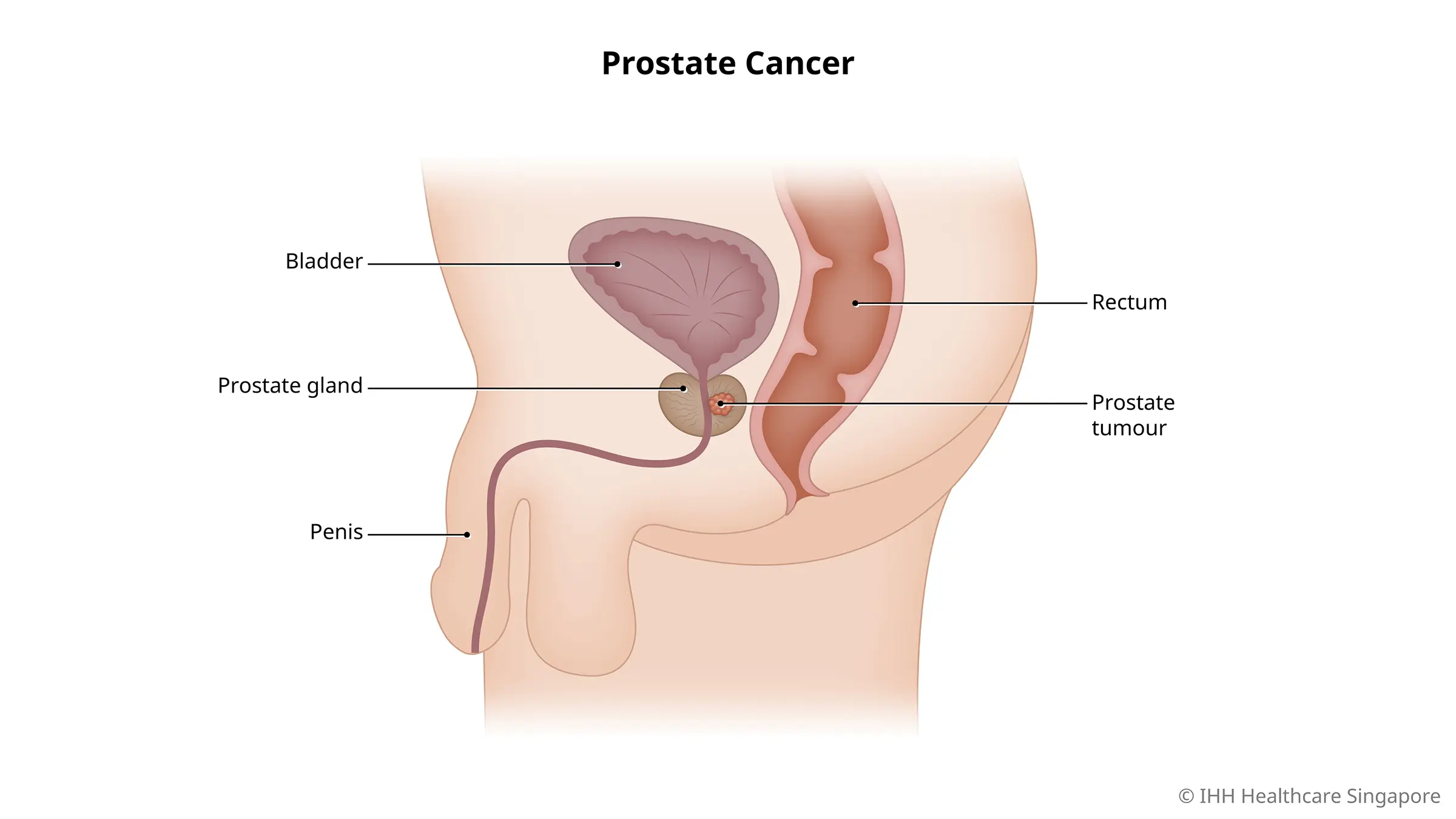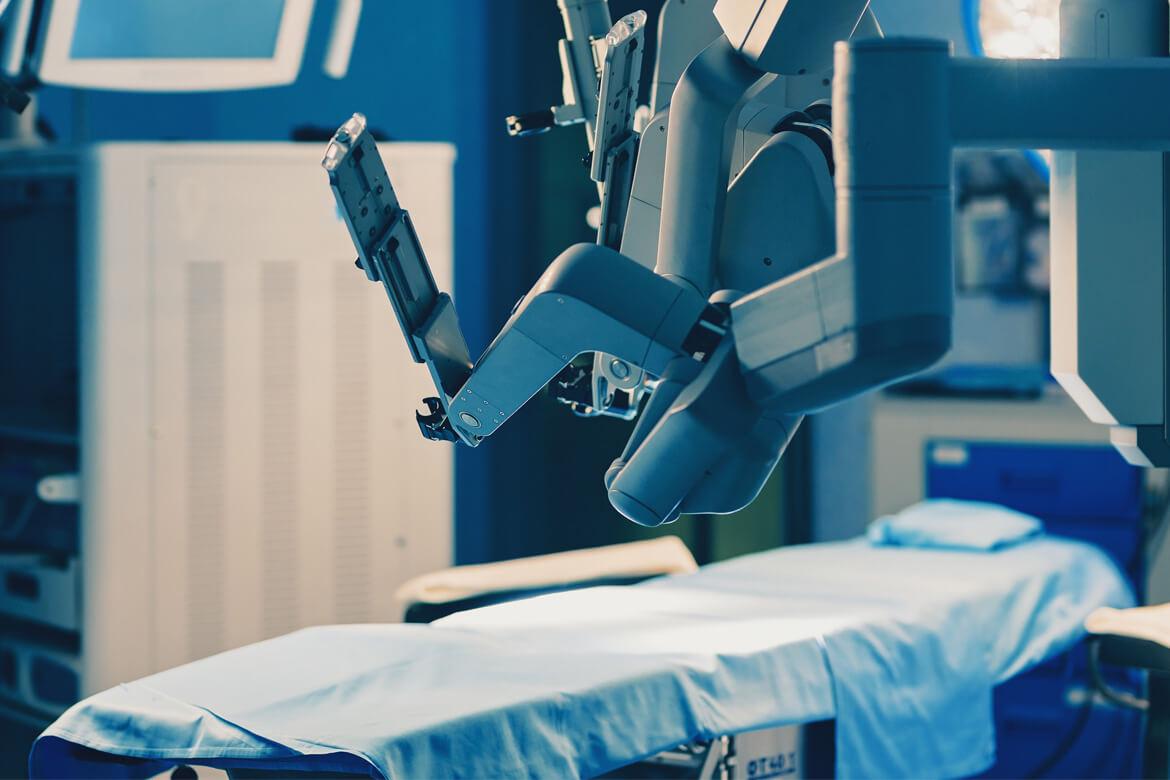-
-
Featured Care Areas

Prostate Cancer
What is prostate cancer?
Prostate cancer is an abnormal growth of tissue in the prostate.
The prostate is a walnut-sized gland found in the lower abdomen in men, under the bladder. Its function is to produce semen.
Most cases of prostate cancer are adenocarcinomas, which grow in the tissues of a gland such as the prostate gland. It is usually categorised as aggressive, or fast-growing, which is more likely to spread to other tissues or organs, or it may be non-aggressive which means it grows very slowly.
It is the third most common cancer in Singapore, mainly affecting older men above 65 years of age. Early detection through prostate cancer screening can help reduce mortality.
What are the symptoms of prostate cancer?
Prostate cancer usually do not present symptoms, especially in the early stages.
About 80% of men over the age of 80 have cancer cells in their prostate. As most prostate cancers grow slowly, many men die of other old age ailments without ever knowing they have prostate cancer.
If, however, there are symptoms, they likely include:
- Difficulty in passing urine
- Frequent urge to urinate
- Only passing a trickle of urine
- Weak urine flow or less force in the stream of urine
- Burning or pain when urinating
- Difficulty urinating or not being able to urinate
- Blood in the urine (hematuria) or semen
- Loss of appetite
- Weight loss
- Pain in the pelvis, lower back, hips or upper thighs
- Bone pain
- Erectile dysfunction
What causes prostate cancer?
Prostate cancer forms when cells in the prostate start to change and divide more rapidly than normal cells. This abnormal growth accumulates to form a tumour. It is unclear what causes this change.
What are the risk factors of prostate cancer?
There are several factors associated with an increased risk for prostate cancer. These include:
- Age. Prostate cancer becomes more common as men age, with most cases occurring over the age of 50.
- Diet. A diet high in calories, animal fats and refined sugar is linked to increased risk for prostate cancer.
- Ethnicity. Prostate cancer is found to be more common in men of African descent. It typically occurs at an earlier age and in a more aggressive form. However, prostate cancer can develop in men of any ethnic group.
- Family history. Men with a close relative such as a father, brother or son who have had prostate cancer are 2 – 3 times more likely to get prostate cancer. A family history of breast cancer may also influence prostate cancer risk.
- Obesity is often the result of a high-calorie diet and low physical activity, and is linked to more aggressive forms of prostate cancer. It may also increase the risk of dying from prostate cancer.
- Smoking is estimated to double the risk for developing prostate cancer and is also linked to higher risk of dying from prostate cancer. Quitting reduces the risk, and within 10 years the risk is equivalent to someone who has never smoked.
How to prevent prostate cancer?
While there is no specific method for preventing prostate cancer, you can reduce your risk by practising a healthy lifestyle. This includes:
- Being more physically active. Regular exercise can improve your overall health, help to prevent many conditions, and reduce your risk for cancer.
- Eat a balanced diet. A diet low in sugar, fat and processed food, and high in fruits, vegetables and whole grains, can help improve overall health and reduce your risk for many conditions.
- Maintain a healthy weight. If you are overweight or obese, you may need to increase your level of activity and reduce your intake of calories per day.
- Speak to your doctor. Ask your doctor about prostate cancer screening, especially if you have one or more risk factors.
This page has been reviewed by our medical content reviewers.
Need help?
For enquiries, please call
+65 6575 7575
For appointment bookings, please WhatsApp
+65 8111 9777









